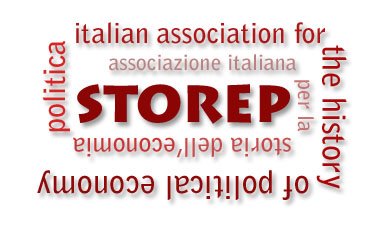From Past to Present: The Foundations, Definitions and Usages of Perfect Competition.
International Workshop devoted to Perfect Competition,
co-organized by EconomiX and by les Cahiers d’Economie Politique.
Paris, January 2011 (Thursday the 13th and Friday the 14th).
Call for Papers
In contemporary economics, imperfect competition prevails: Applied economics and pure theory essentially develop on the basis of partial equilibrium models and imperfectly competitive games, as exemplified by standard industrial organization. These strategic models remain connected to perfect competition: First through the standard assumption(s) they reject; second through the typical property of social efficiency their equilibria lose. But these connections are often unclear, as the definitions used for perfect competition are often vague; perfect competition is sometimes even improperly identified with the ideal situation of optimal equilibrium.
If the numerous developments of imperfect competition have obscured the benchmark of perfect competition, then renewed investigations dedicated to this reference may be justified. Beyond studies focused on the assumed meanings of perfect competition by imperfectly competitive approaches, it would be relevant to oppose such meanings to definitions that have prevailed in the history of economic thought (Walras’ organized free competition, Debreu’s notion of competition, and so on).
A clearer understanding of perfection competition, as a concept with multiple meanings, may emerge from a review of its old and new definitions. Two debates would follow: A renewed discussion about the meaning of the model and about its benchmark status; and a rethinking of the strategic foundations of perfect competition.
In a nutshell: To clarify the theoretical and applied consequences of the different approaches to perfect competition, the association of historical commentary and contemporary theory could be enlightening. One might actually expect a better understanding of perfect competition, as well as indirect benefits both for certain imperfectly competitive models and general economic thought.
The Organization and Scientific Committees will consider every paper tackling one or more of the following problems:
1. Current status of the contemporary usages of perfect competition: what is abandoned and what is kept of the competitive benchmark.
– Studies of contemporary models of imperfect competition and of their relationship to the competitive reference.
– Studies of current partial equilibrium or general equilibrium models still developed (totally or partially) in the perfect competition framework.
2. Logical and/or historical studies of perfect competition definitions.
– Perfect competition according to Marshall, according to Arrow, and so on. The evolution of perfect competition from Walras to Debreu.
– Is price taking behavior a necessary condition and/or a sufficient condition for perfect competition? (Cf Ostroy). Is the tâtonnement an integral part of perfect competition? Is it relevant to distinguish between perfect competition in equilibrium and in disequilibrium?
3. Reflections devoted to the foundations of perfect competition.
– Strategic foundations of perfect competition (à la Cournot-Shubik, à la Edgeworth, à la Rubinstein).
– Foundations of the competitive equilibrium versus foundations of the competitive structure.
Paper proposals (as an abstract of 600 words written in French or English) will be received until June 10th, 2010. They are to be sent to: workshopPCparis2011@gmail.com
The acceptance or rejection of the proposals by the scientific committee will be announced July 10th 2010, and the complete texts must be delivered by November 30th 2010.
The workshop will take place at Paris-Nanterre, on January 2011 (the 13th and 14th).
Selected papers will finally be published in a special issue of the review “Cahiers d’Economie Politique” in 2012.
Organizing Committee:
Andrés Alvarez (National University of Colombia).
Nathalie Berta (University of Reims).
Franco Donzelli (Bicocca University of Milan).
Ludovic Julien (University of Paris Ouest).
Antoine Rebeyrol (University of Paris Ouest).
Fabrice Tricou (University of Paris Ouest)
Scientific Committee:
Carlo Benetti (University of Paris Ouest).
Alain Béraud (University of Cergy-Pontoise)
Giulio Codognato (University of Udine).
Marco Dardi (University of Florence).
Michel De Vroey (Catholic University of Louvain).
Rodolphe Dos Santos Ferreira (University of Strasbourg)
Bruna Ingrao (Sapienza University of Rome).
Leonidas Koutsougeras (Manchester University).
Andreu Mas-Colell (Pompeu Fabra University of Barcelona).
Aldo Montesano (Bocconi University of Milan).
Joseph Ostroy (UCLA).
Claire Pignol (University of Paris I).
Ariel Rubinstein (NYU and University of Tel Aviv).
Martin Shubik (Yale University).
Argomenti
bandi
(52)
benvenuto
(1)
blog e forum
(24)
convegni
(285)
novità editoriali
(74)
premi
(3)
riviste
(163)
seminari
(59)
Storep attività
(80)
summerschool
(14)
